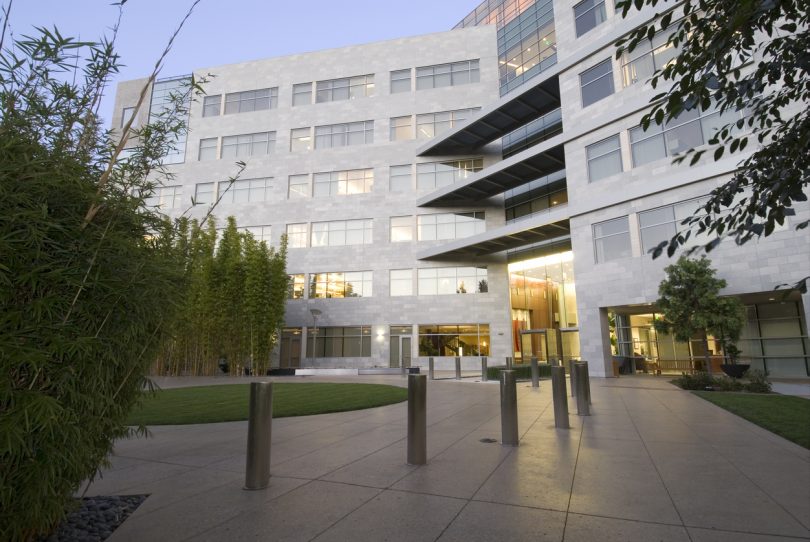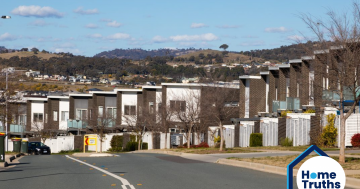
The ACT on the surface appears to be doing reasonably well economically right now. But beware the dangers beneath.
Changes to ACT property taxation risk unintended consequences which could seriously endanger commercial property investors in an economic downturn, possibly damaging vulnerable investors in the ACT commercial property market.
As well as deterring new investment, current investors could divest themselves of Canberra property and put their capital elsewhere.
Former Chief Minister Jon Stanhope and Khalid Ahmed from the University of Canberra’s Institute of Governance and Policy Analysis, have pointed out that the ACT’s public finances are at their weakest for more than a decade.
That should be warning enough to get our house in order: the ACT is in a vulnerable position because the Government’s commercial land tax system is almost guaranteed to turbocharge any recession or downturn.
Let me explain…
The ACT’s 20-year land tax reform program aims to move the tax base from economically inefficient stamp duties to broader-based land taxes and rates.
The long-term approach is commendable. But the reduction in stamp duties has been modest while rates and land taxes have been ramped up well beyond that reduction, even allowing for inflation. Further, land tax on commercial property has been abolished and subsumed into the rates system.
In June 2018 the ACT Government scrapped stamp duty for all commercial properties under $1.5 million, a worthwhile step. But in the light of the increases in rates for commercial property, it does not address the potential for an ACT recession.
Those rates are huge. They kick in at a little over 3 per cent of the unimproved capital value and rise steadily to just over 5 per cent of unimproved value at $275,000. True, the 5 per cent is on unimproved value, not total value, which is typically double UV, but it is still the equivalent of paying stamp duty every second year.
It is very difficult to make exact comparisons of commercial property taxes with other states, however, in most places rates and charges usually amount to something less than 1 per cent of UCV, albeit higher in Sydney and Melbourne. In the ACT the rates on commercial property (which in effect include the equivalent of other states’ land taxes) are applied at the same rate across the territory.
But the discrepancy between the ACT and Victoria and NSW is so vast that businesses should be asking the ACT Government why it is so anti-business. Land tax on a $2 million property in Victoria is $12,000; in the ACT the property tax is $113,000. Land tax on a $4 million property in Victoria is $47,000; in the ACT the property tax is $230,000.
NSW has a threshold (around $650,000) below which you pay no land tax. It peaks at 2 per cent after $3.8 million, compared to the ACT’s more than 5 per cent. NSW and Victoria have legislated caps on rate increases, so they do not go much beyond inflation. In short, the ACT’s window-dressing abolition of commercial ‘land tax’ has allowed it to ramp up commercial rates.
You can see why the Government wanted to disguise it. In 2009-10 (the last full financial year of Stanhope’s tenure) $95 million was raised in land tax. In 2016-17 that was $130 million – a 37 per cent increase, nearly three times the inflation rate.
Total rates went up from $188 million to $487 million – a 160 per cent increase, or 12 times the inflation rate. A little more than half of rates are commercial. And although stamp duty rates have fallen, the total government take from stamp duty in that time rose from $266 million to $300 million.
This is an enormous gouge, but the real problem comes when a commercial property falls vacant. When land tax was introduced the owner was only liable to pay land tax for the quarter if the property was earning an income on the first day of the quarter. In a rates-only system the property owner now pays the equivalent of land tax even when the property is vacant.
In a potential slowdown, tenants do not renew. They leave or demand unsustainable rent reductions. Given the very high level of ACT rates, it is harder for property owners to sustain that, so they are more likely to sell than in other states.
Rates are based on a three-year rolling average. So even if properties are sold in a downturn and property values fall the rates remain high for a couple more years, and there is no longer any relief from the land-tax portion if the property is vacant. The unintended consequences of this development could include sending even mortgage-free commercial landlords to the wall in a protracted downturn.
Vacant premises, no tenants and a crippled commercial property market. An enormous property tax every year. No income from that property and little prospect of selling it. The only solution might be a mortgage on the family home. And that might presage disaster.
If the ACT does not behave in a more fiscally responsible way by spending less and cutting taxes (especially exorbitant job-shrinking property taxes) we will be in no position to avoid a turbocharged recession.
Peter Blackshaw is the former proprietor of Peter Blackshaw Real Estate.




















